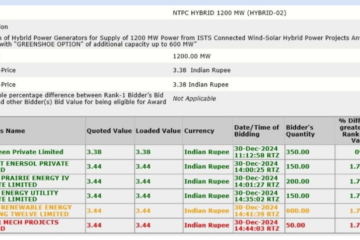Hydrogen Fuel Cells: A Game-Changer in Energy Storage for India
“With its ability to provide long-duration, reliable power, hydrogen-based fuel cell technology has immense potential to revolutionize India’s energy storage landscape and pave the way for a cleaner, greener future.”
Hydrogen fuel cells have been around for a while, but they have recently gained more attention as an energy storage option. With the push towards renewable energy, the need for reliable and efficient energy storage has become increasingly important. Hydrogen fuel cells offer a clean, flexible, and cost-effective solution for stationary energy storage applications. In this article, we will explore how hydrogen fuel cells can act as a good option for energy storage, the Indian companies acquiring hydrogen and fuel cell technology, and how reliance and Avaada Solar are planning to tap this segment.
Hydrogen fuel cells work by converting hydrogen gas into electricity through an electrochemical process. They are highly efficient, quiet, and produce no emissions other than water vapor. They can be used for stationary energy storage applications, as well as for transportation, and are ideal for applications that require long-duration energy storage, such as microgrids, data centers, and remote communities.
In India, there has been a growing interest in hydrogen fuel cells, with several companies acquiring the technology. Reliance Industries Limited (RIL) has acquired UK-based fuel cell company Ceres Power Holdings Plc for $161 million. Ceres Power has developed a solid oxide fuel cell technology that can run on a variety of fuels, including hydrogen and natural gas. RIL plans to use this technology to develop and manufacture fuel cells for various applications, including data centers and electric vehicles.
Avaada Energy has also entered the hydrogen fuel cell space, signing an agreement with Singapore-based company Horizon Fuel Cell Technologies to develop and manufacture hydrogen fuel cells in India. The companies plan to manufacture fuel cells for various applications, including backup power for telecom towers and remote power systems.
India’s push for green hydrogen could also be a game-changer for the fuel cell industry. The Indian government has set a target of 10% hydrogen blending in the natural gas grid by 2030 and is planning to develop green hydrogen through renewable energy sources such as solar and wind. The development of a green hydrogen ecosystem could lead to a significant reduction in the cost of hydrogen fuel cells, making them more competitive with traditional energy storage options.
In conclusion, hydrogen fuel cells offer a clean, flexible, and cost-effective solution for stationary energy storage applications. With Indian companies such as RIL and Avaada Energy investing in the technology, and the push towards green hydrogen by the Indian government, the future looks bright for the fuel cell industry. As the technology advances and costs continue to come down, we can expect to see more widespread adoption of hydrogen fuel cells for energy storage applications in the years to come.
